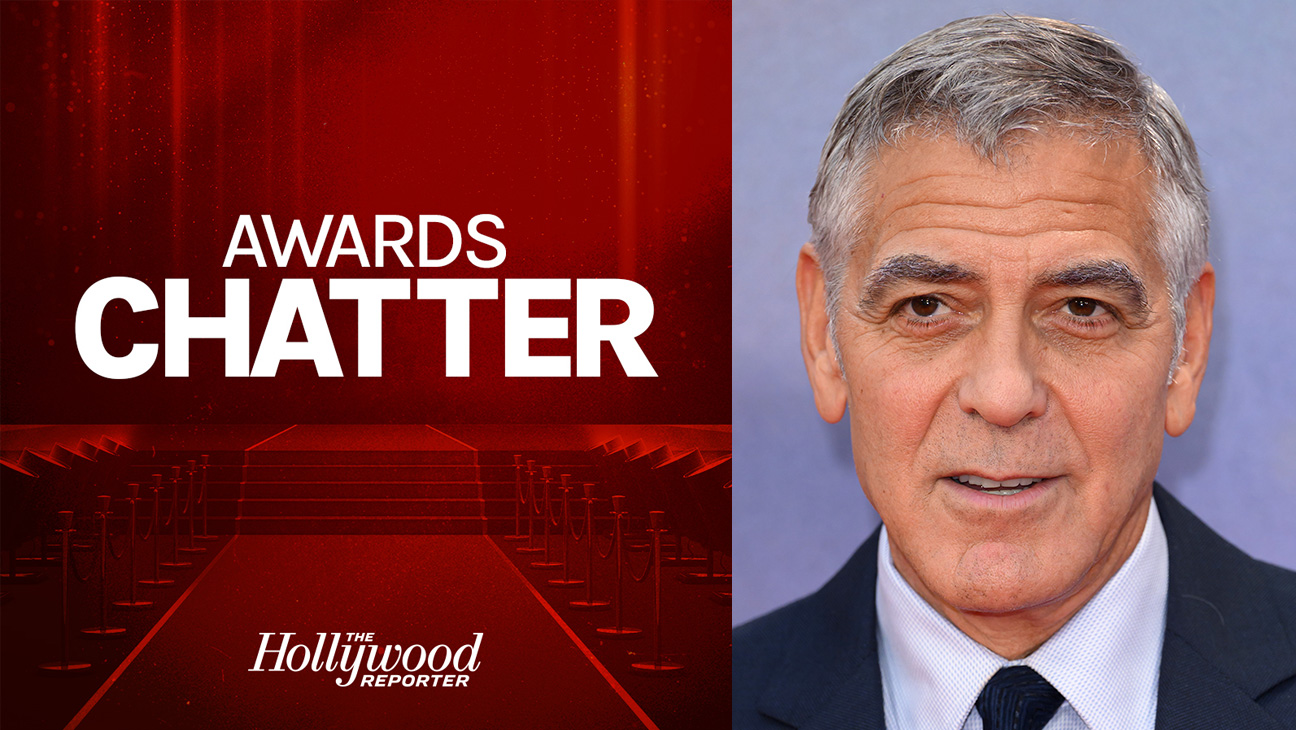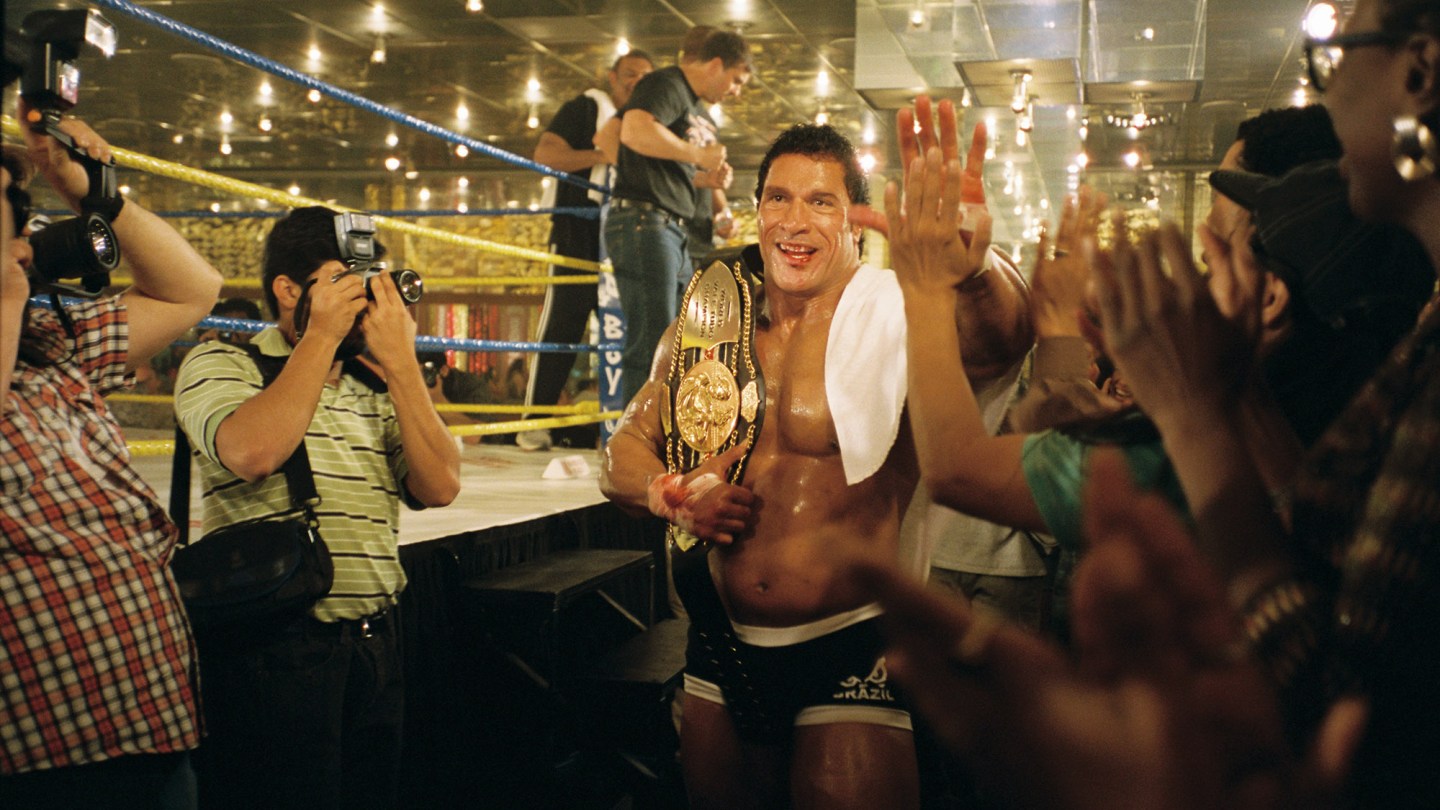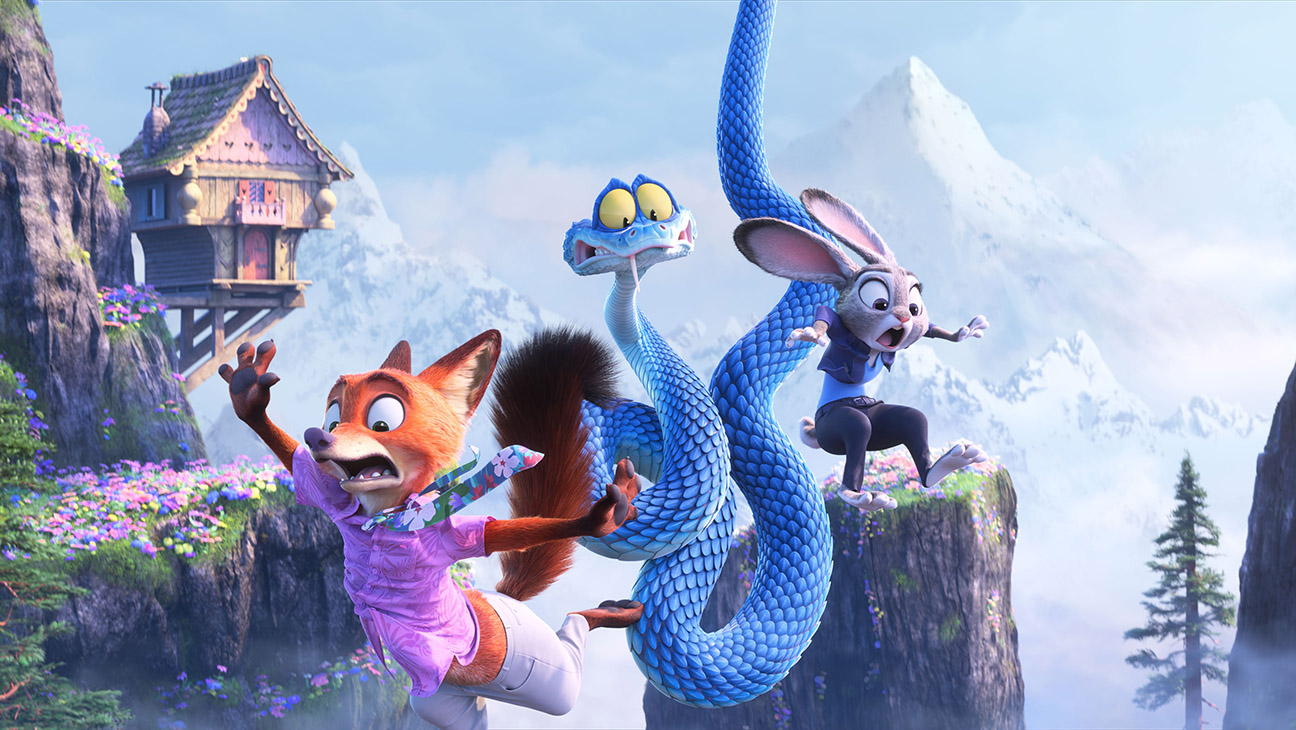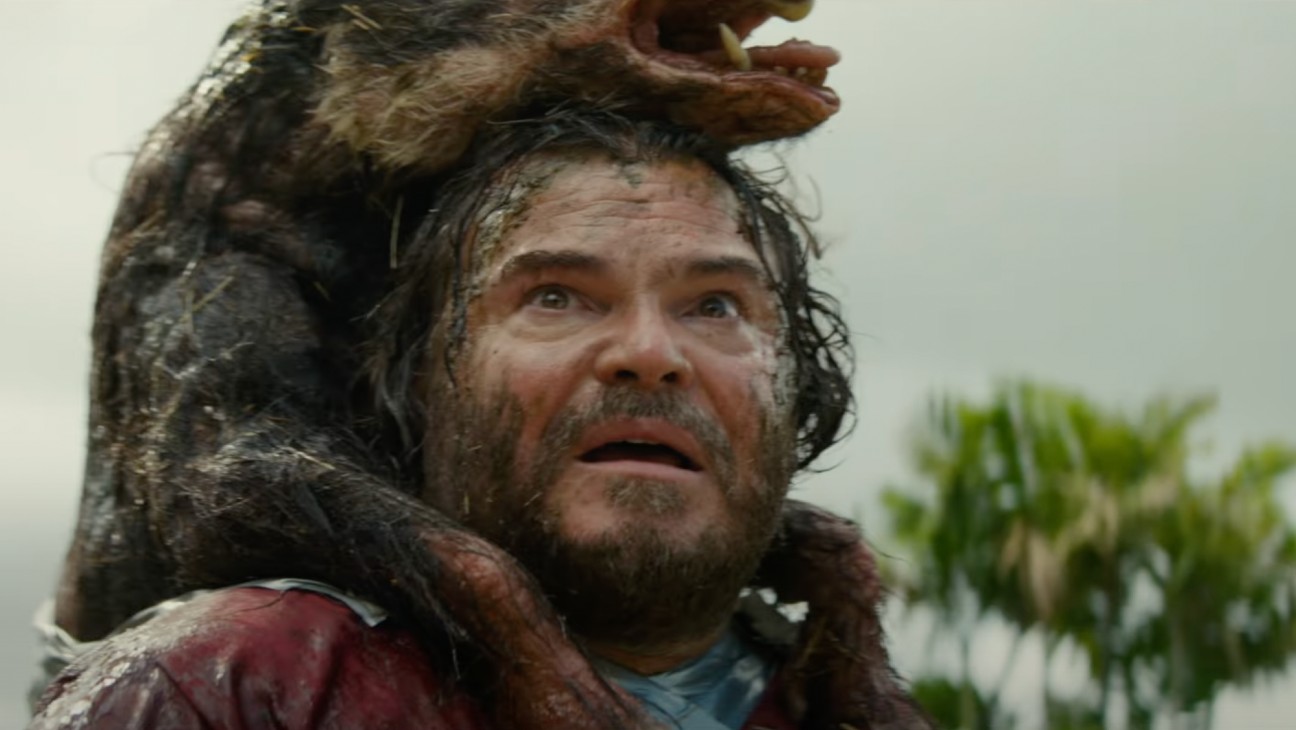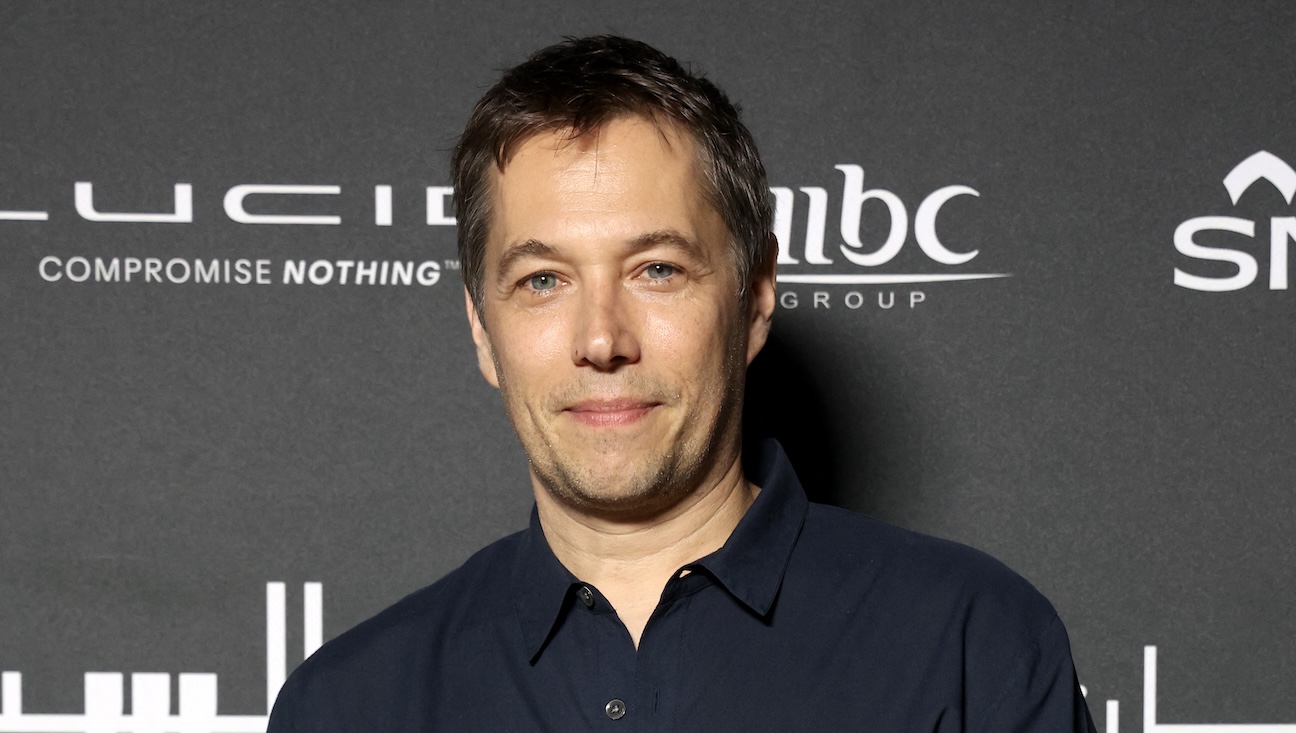“This never felt like a story about a movie star to me,” George Clooney says as we sit down at West Hollywood’s Sunset Tower hotel to record an episode of The Hollywood Reporter’s Awards Chatter podcast — on which he last guested in 2019 — ahead of the release of Jay Kelly, the new Noah Baumbach dramedy in which Clooney plays the title character, a movie star experiencing an existential crisis. “This felt like a story about almost every one of us who has had to balance work and life.”
Even so, Jay Kelly — which has been a hit on the fall film fest circuit en route to its theatrical release on Nov. 14 and Netflix debut on Dec. 5, and for which Clooney could earn the fifth acting Oscar nomination of his distinguished career — raises a lot of interesting questions about stardom. And few people alive today are more qualified to discuss the subject than Clooney, who has been an A-lister for more than three decades.
Like Jay Kelly, Clooney was born in Kentucky, came to Hollywood, caught a few breaks and became a critical and commercial darling sometimes described as “the last movie star,” despite a handful of contrarians occasionally accusing him of playing himself. Unlike Kelly, Clooney hasn’t shown a blatant disregard for the people around him — he is widely known in the business to be highly considerate to his “team,” generous to his friends (once gifting 14 of them checks for $1 million), attentive to his parents and, after many years as a bachelor, a loving husband and father.
Baumbach says he wrote the role of Kelly for Clooney and would not have made the film if Clooney had declined it — something that many other movie stars might have done, out of fear that the public might assume that a character that resembled them in so many ways — right down to the film featuring a montage of Kelly’s past work that consists of clips of Clooney’s past work — was actually a reflection of them in all ways.
Clooney said that “wasn’t really a consideration” for him, in part because he is comfortable in his own skin and in part because Baumbach only added some of those details after Clooney signed on. “He added the Kentucky thing and a couple of those things as we were shooting. He kept looking at my life and adding things, and I was like, ‘Take it easy.’” As for the montage featuring clips of his own films? “I was shocked by that,” he admits, but he was not upset. He has learned to take these sorts of things in stride. “When I did Up in the Air, there were all these conversations about how [the character] was very similar to me, and it was — there were things that I had said like, ‘I don’t ever want to get married again’ and all those kind of things.”
How did Clooney avoid becoming like Jay Kelly in his own life? He insists it’s all about when and how they each became famous. Of Kelly, Clooney says, “He was famous too young. He’s been surrounded by a team of people who have said ‘yes’ to him … He’s not an evil guy; he’s just oblivious.” Clooney, however, was already 33 by the time he became famous, old enough to have experienced a normal life first — something that he says had not been the case for his own late aunt, the singer Rosemary Clooney, whose resulting troubles he observed up close.
Also, Marshall McLuhan famously said, “The medium is the message.” And Clooney agrees. “I got famous from television, not from movies,” he emphasizes. “You watched me at home, and you could make me talk or not talk with the remote, and you’d watch me in your underwear, and you knew me personally, so I was very much accessible in that way.”
In those days, the worlds of film and TV were much more segregated, and it was virtually unheard of for someone who had first become famous as a TV star to subsequently become a movie star. Clooney was no exception, at first: “I’d done five or six films while I was doing ER, some very good ones, that didn’t succeed — Out of Sight didn’t succeed, Three Kings didn’t succeed — and so the big question was, ‘Am I going to make it in the movies?’ And the answer was no — until I left ER. The next two movies I had were sort of a perfect combination of The Perfect Storm — which was a big hit having nothing to do with me, but listen, I took a lot of shit for Batman & Robin, so I’ll take credit for the big wave — and O Brother, Where Art Thou?, which was a critical hit.”
After that, he was off to the races, starring in hits like 2001’s Ocean’s Eleven and its 2004 and 2007 sequels but far more often in art house fare, including 2005’s Syriana, for which he won a best supporting actor Oscar; 2007’s Michael Clayton, 2009’s Up in the Air and 2011’s The Descendants, each of which brought him best actor Oscar nominations. He also began writing, directing and producing quality films, some of which he appeared in, others not — he received best director and best original screenplay Oscar noms for 2005’s Good Night, and Good Luck, in which he played a supporting part; a best adapted screenplay Oscar nom for 2011’s The Ides of March, in which he also played a supporting part; and he won a best picture Oscar for producing 2012’s Argo, in which he did not appear at all.
Incidentally, he says that he did want to play the leads in Good Night, and Good Luck and Argo, but came to realize that he should not. “I wrote Good Night, and Good Luck to play Murrow,” he says, referring to TV newsman Edward R. Murrow, “and we did a table reading and I looked at Grant [Heslov, his best friend and co-writer on that project] and said, ‘I don’t have the gravitas to play that character yet.’ I was too young, which was really disappointing because I really wanted to play the part. David Strathairn, of course, knocked it out of the park. But I still had to be in the film to keep the financing.” As for Argo? “I was supposed to play the lead in Argo, but when [Ben Affleck] came on to direct it, he said, ‘Yeah, I’d like to play that part.’ And I was like, ‘Shit.’”
Since Clooney last was on this podcast — back when he was promoting 2019’s Catch-22, a Hulu limited series on which he was an executive producer and director, and in which he also played a supporting role — he has been working nonstop. He directed three films — 2020’s The Midnight Sky, 2021’s The Tender Bar and 2023’s The Boys in the Boat) — the first of which he also starred in. He also starred in a rom-com opposite Julia Roberts (2022’s Ticket to Paradise) and a heist film opposite Brad Pitt (2024’s Wolfs). Thirty nine years after he last acted on stage, he made his Broadway debut playing the aforementioned Murrow in a theatrical adaptation of Good Night, and Good Luck, garnering a best actor in a play Tony nom. And he made Jay Kelly, of which he is obviously immensely proud.
* * *
George Clooney’s thoughts…
On social media
“I talk to kids all the time. I talk to kids at SAG and things, and they’re all on Instagram and everything. And when I was directing and I was casting, and it was between two actors, the casting director and the studio would come to me and go, ‘Well, she’s got 175,000 followers on Instagram, and the other girl’s got 30,000.’ Those were literally the discussions we had. And I said to all these actors, ‘Get the fuck off of it. Get off of all of it. Because if you’re not on it, you have nothing to be compared to.’ And that access, I get it — you can monetize it, you can drink a certain kind of water and they’ll pay you 10 grand, and fair enough, I get it, I understand it. But trying to maintain a career and answer all of the questions that every individual has for you, it’s diminishing your ability to be bigger than life. It’s inevitable, and I’m sort of swimming upstream, and I don’t think that there’s much you can do about it, but I do think it’s better to not be as available.”
On AI
“It’s very disturbing, some of the stuff you’re seeing. … I’ve seen stuff with me in it that’s pretty disturbing, stuff that I ‘said’ that I never said, telling, you know, great stories about Hitler and stuff like that, where you just go, ‘Jesus Christ.’ But I will say that AI is gonna have the same problem that Hollywood has always had, which is it’s still hard to find a movie star.”
On younger stars who impress him
“I think Zendaya … can do television, she can do commercials, she can do movies, she seems to have that ability to rise above it. I think Glen Powell is doing interesting stuff as a young actor; he’s kind of hitting around the time I hit, and he seems to want to direct and produce and write and do all of those things with a little bit of humor about himself, which I think is an element that’s important if you look back. I’m not ready to call it all dead yet.”
On failure versus regret
“You can live with failure. What you cannot live with is regret. You can’t live with that road that you didn’t try when you think ‘that could have been something special,’ because you can’t go back, and that is toxic. And that, to me, is something that I happily don’t have in my life. If I get hit by a bus when I walk outside after this interview, there’s not one person who knows me or who’s been around me that wouldn’t think, ‘Well, he pretty much got everything you could get out of it.’ I’m the most successful version of where I started, cutting tobacco for $3 an hour, that I ever thought I’d be, and not just in work as an actor, but also in life. I have a beautiful wife and wonderful children and great friends and a great family. And I’ve worked at those things. But I also had made sure that wherever there was a fork in the road, I took the one that I thought was the riskiest and not the safest. And it worked out. It could have not. I could live with that. What I couldn’t live with is having not taken that road.”

